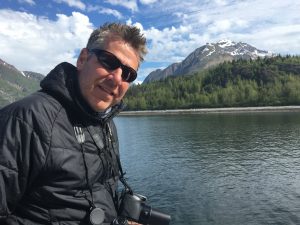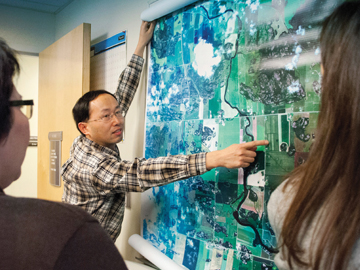
Topics & Speakers
Junior Water Walkers
Presenters: Joanne Robertson and Peter Cameron
MONDAY, MAY 31 | 11am – 12pm

Environmental Repossession and Cultural Identity
Chantelle Richmond (University of Western Ontario) and Lake Superior Living Lab Network Panel Discussion
TUESDAY, JUNE 1 | 11am – 12pm
Water Stewardship
Presenters: Jordan Cheff, Cold Water 4 Clean Water
Date TBD | Time TBD
Careers
Presenters: Diana Mackay, Aga Khan University
THURSDAY, JUNE 3 | 4-5pm
Indigenous Water Knowledge; Jurisdictional Issues; Knowledge Systems
Presenters: Barbara Wall, Chanie Wenjack School
for Indigenous Studies
FRIDAY, JUNE 4 | 11am-12pm

Credit Course
The Speaker Series also forms the foundation of a credit course through Algoma University. If you are not currently a student at Algoma University, you can apply here to take the course.
The course is part of our Level 1 of the Professional Lands Management Certification Program offered in partnership with the National Aboriginal Lands Managers Association (NALMA).
Learn More
Geography, Geology and Land Stewardship Program
This program is ideal for students interested in geographic information systems (GIS), remote sensing, climate change, environmental sustainability, research, and urban and regional development. The program is divided into four major thematic areas: physical geography, human geography, human-environmental geography, and geomatics.
Learn More